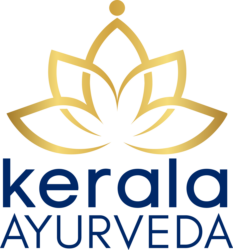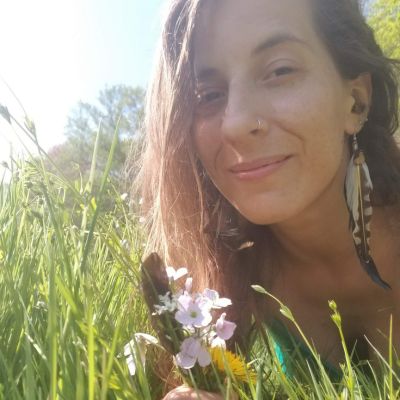If you’re deciding how to begin your Ayurvedic educational journey and are wondering which way to turn – choosing between our Holistic Ayurvedic Coach (HAC) or Ayurvedic Health Counselor (AHC) certifications – you’re in the right place now! In this article, we break down what’s similar and what’s different between the two programs, as well as how they work together as first steps in the Ayurvedic path at Kerala Ayurveda Academy.
The basics: what you need to know first
- HAC is is our basic certification – it’s for any level of learning, and it’s not not designed to match the professional membership designations of the National Ayurvedic Medical Association
- AHC is our level I certification – it is approved by the National Ayurvedic Medical Association’s for the first level of professional membership
- You can use both certifications for personal and professional goals
- HAC is the first half of AHC, which means you can seamlessly transition from your Coach certification to level I AHC if you decided to continue your studies
We developed our programs in tandem with the growth of the Ayurvedic profession in the U.S. When Kerala Ayurveda Academy opened in 2006, we offered one certification: a 500-hour version of our level I AHC program. This program grew in total hours to accommodate competency requirements designated by the National Ayurvedic Medical Association (NAMA), the largest organization in the U.S. setting professional industry standards. Based on NAMA’s level II and III professional memberships, we added additional advanced certifications. We also have expanded advanced professional offerings, continuing education workshops and online series based on feedback from our students and graduates to support their needs. In addition to enhancing our advanced learning options, we also want to offer more introductory level programs to make it easier for newcomers to Ayurveda to receive the authentic teachings.
We launched the Holistic Ayurvedic Coach program to address the need of prospective students who:
- Are interested in the level I Ayurvedic Health Counselor program but are not ready yet to make the 1-year commitment
- Are not sure if they need the level I AHC scope of practice and would like to explore how HAC can support them
The program format and curriculum

Length – the primary difference
THE COACH PROGRAM IS 6 MONTHS IN LENGTH AND 300 HOURS
THE COUNSELOR PROGRAM IS 1 YEAR IN LENGTH AND 600 HOURS
As the Coach program is half of the Counselor program, students of both programs travel together in their educational journey for the first 6 months, and then the Counselor students continue on for the remaining 6 months of their program with fellow Counselor students.
Comparing formats: what’s included
| Weekend Intensives | Tuesday Virtual Classes | Mentoring Sessions | Practical Immersion | Online Recorded Lectures | |
| HAC (6 Months) | KAA101-106 | 12 | 5 | (1) One 6-day Session | 89 hours |
| AHC (1 Year) | KAA101-111 | 28 | 11 | (1) One 6-day Session (2) Two 5-day Sessions | 195 hours |
Comparing curriculum
The curriculum for the Coach program is identical to the first 6 months of the Counselor program, as it is 50% of the program. The curriculum only differs between the two programs based on their length. This core introductory curriculum is centered around our core educational modules known as Weekend Intensives. The Weekend Intensives occur once per month and take place Saturday-Sunday from 8am-6pm Pacific Time. They are held both in-class and live streamed, so students have the option of attending in person or online. The Coach program includes the first 6 Weekend Intensives of the Counselor certification.
| Course Component | Coach (HAC) | Counselor (AHC) |
| Course Manuals (Print & PDFs) | 6 | 11 |
| Exams | 6 | 11 |
| Assignments | 3 | 5 |
| KAA 101: The Essence of Ayurveda (Tarka Sankhya and Sharir) | ✓ | ✓ |
| KAA 102: Ayurvedic Physiology (Dosha Dhatu Mala Vigyan) | ✓ | ✓ |
| KAA 103: Ayurvedic Psychology (Manasa Shastra) | ✓ | ✓ |
| KAA 104: Ayurvedic Nutrition & Cooking (Ahara Vigyan) | ✓ | ✓ |
| KAA 105: Ayurvedic Preventive Science (Swastha Vritta) | ✓ | ✓ |
| KAA 106: Ayurvedic Yoga (Yoga Vigyan) | ✓ | ✓ |
| KAA 107: Ayurvedic Herbology (Dravya Guna Karma Sastra) | ✓ | |
| KAA 108: Introduction to Ayurvedic Bodywork (Panchakarma) | ✓ | |
| KAA 109: Assessment of Dosha Imbalances (Roga Nidan) | ✓ | |
| KAA 110: Management of Dosha Imbalances (Kayachikitsa) | ✓ | |
| KAA 111: Clinical Management and Review & Graduation | ✓ |
Additional curriculum is taught in the Tuesday Virtual Class sessions (live streamed Tuesday evenings) and Online Recorded Lectures (self-paced), which are designed to supplement the Weekend Intensive curriculum. You can view this curriculum in more detail in the course catalog and program schedules.
What's the scope of practice for Ayurvedic Coaches and Counselors?

Scope of practice comparison: Ayurvedic Coach vs Health Counselor
| Coach (HAC) | Counselor (AHC) | |
| Educate clients and general public on Ayurvedic principles including the holistic view of health, the elements, Doshas, Ayurvedic diet, daily and nightly routines, and living in alignment with nature’s rhythms | ✓ | ✓ |
| Explain the connection between body, mind and spirit and how various natural tools and principles can enhance the quality of life | ✓ | ✓ |
| Take health history of a client’s personal and family wellness | ✓ | ✓ |
| Analyze a client’s unique mind-body constitution according to Ayurvedic principles | ✓ | ✓ |
| Advise clients on dietary choices based on their constitution and the six tastes | ✓ | ✓ |
| Create daily, nightly and seasonal routines for clients based on their constitution and age | ✓ | ✓ |
| Recommend simple yoga and breathing techniques for improved health | ✓ | ✓ |
| Offer talks, workshops and write articles about principles of Ayurvedic living, cooking, preventive practices, simple yoga and breathing techniques | ✓ | ✓ |
| Recommend common rejuvenative (Rasayana) herbs for preventative health and life enhancement | ✓ | |
| Recommend basic Ayurvedic bodywork therapies | ✓ | |
| Assess common Dosha imbalances in individuals and offer supportive recommendations in diet, daily and seasonal practices, simple yoga and breathing, common rejuvenative herbs and basic Ayurvedic bodywork therapies | ✓ |
Holistic Ayurvedic Coaches are trained in lifestyle health science in order to assess individual Ayurvedic constitution and make lifestyle recommendations in includes daily, nightly and seasonal routines, sleep, exercise, nutrition, spices and yoga. This scope of practice is similar to the Counselor scope of practice, though Counselors additionally study Ayurvedic herbs (Dravya Guna Kama Sustra), bodywork therapies (Panchakarma) and both assessment and management of clinical imbalances (Roga Nidan and Kayachikitsa). Counselors can also recommend rejuvenating herbs, Ayurvedic therapies and tips for common Dosha imbalances.
You can find a detailed scope of practice for the Holistic Ayurvedic Coach program here and the Ayurvedic Health Counselor program here.
Professional applications of Ayurveda
Ayurveda can be offered on its own, and it also complements all other healing modalities. Your Coach or Counselor certification can supplement what you already offer and carve out a niche for business. Graduates of our programs come from a variety of backgrounds, including:
- Yoga Instructors and Therapists
- Massage Therapists, Chiropractors and Bodyworkers
- Medical Practitioners
- Reiki and Energy Practitioners
- Nutritionists and Dieticians
- Life Coaches
- Psychologists and Counselors
The first goal of Ayurveda according to the ancient Vedic texts is Swasthasya Swasthya Rakshanam – to preserve the health of the healthy. This goal is the basis for training in the level I Ayurvedic Health Counselor program, and therefore applies to the Coach program as well.
Coaches and Counselors focus on lifestyle shifts to prevent disease, not to manage existing illness. To address disease conditions, professionals must advance to the level II Ayurvedic Practitioner certification. Level I Counselors are introduced to the disease process and are equipped to assess common Dosha imbalances in individuals and recommend lifestyle changes accordingly. Counselors are educated in discerning when a client’s case is too complex for their scope of practice and a referral should be made.
If you intend to use your certification for your business, the scope of practice is your best guide to deciding which program is right for you.
And remember: if you simply are not sure, you can always enroll in our Holistic Ayurvedic Coach program and decide later! Enrolled Coach students will be given the opportunity to transition into the year-long Ayurvedic Health Counselor program before their Coach program ends. And if you need a hiatus from study, there will be other Counselor programs in the future. We run these programs every spring and fall, so if you do not move on to the Counselor program in tandem with your Coach session, you will have an opportunity to join the next Counselor program in approximately 6 months.
Need more guidance?
Our Enrollment Advisors can assist you
Our Enrollment Advisors are available via email and phone to answer your questions and provide 1-on-1 guidance.





